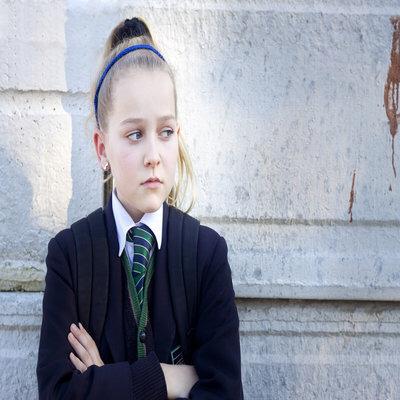Early Intervention Strategies
Practical approaches for parents and carers to support teenagers before antisocial
behaviour escalates to serious legal issues.
Why Early Intervention Matters
Early intervention is crucial for preventing the escalation of antisocial behaviour into more serious
issues. Research shows that timely, appropriate support can significantly improve outcomes for young
people.
- Better Outcomes
Early intervention leads to better educational, social, and health outcomes for teenagers.
- Cost-Effective
Addressing issues early is more cost-effective than dealing with serious offending later.
- Prevents Criminalization
Early support can prevent young people from entering the criminal justice system
- Strengthens Families
Effective interventions can improve family relationships and communication.

Practical Intervention Strategies
Strategies for Home
Effective Communication
Open, non-judgmental communication is essential for understanding your teenager’s perspective.
- Choose calm moments for important conversations
- Listen actively without interrupting
- Validate their feelings even if you disagree with their actions
- Use “I” statements to express your concerns
- Avoid accusatory language or criticism
Consistent Boundaries
Clear, consistent boundaries help teenagers understand expectations and consequences.
- Set clear rules and expectations
- Involve your teenager in establishing house rules
- Ensure consequences are proportionate and related to the behavior
- Be consistent in enforcing boundaries
- Recognize and reward positive behavior
Monitoring and Supervision
Appropriate monitoring helps keep teenagers safe while respecting their growing independence.
- Know where your teenager is and who they’re with
- Set reasonable curfews
- Monitor online activity while respecting privacy
- Get to know your teenager’s friends and their parents
- Create a safe environment for them to bring friends home
Working with Schools
Collaborative Approach
Working together with school staff can create a consistent support system.
- Maintain regular communication with teachers and staff
- Attend parent-teacher meetings and school events
- Share relevant information about home circumstances that might affect behavior
- Work together on behavior management strategies
- Request regular updates on progress and concerns
Educational Support
Addressing learning needs can reduce frustration that may lead to behavioral issues.
- Request assessment for learning difficulties if needed
- Explore additional educational support options
- Help establish good study habits at home
- Celebrate educational achievements, however small
- Consider alternative educational pathways if traditional schooling isn’t working
Addressing School Refusal
School refusal can be an early warning sign of other issues.
- Identify underlying causes (bullying, anxiety, learning difficulties)
- Work with the school to develop a return plan
- Consider involvement of educational welfare officers
- Explore alternative educational arrangements if necessary
- Seek professional help for anxiety or other mental health concerns
Community Engagement
Positive Activities
Engaging in positive activities can provide structure, purpose, and positive peer relationships.
- Encourage participation in sports, arts, or other interests
- Look for youth clubs and community centers
- Consider volunteering opportunities
- Explore mentoring programs
- Support development of healthy friendships
Working with Police and Youth Justice
Early engagement with police can sometimes prevent more serious involvement.
- Understand police cautions and youth reprimands
- Explore Youth Inclusion Programs
- Consider Acceptable Behavior Contracts (ABCs)
- Learn about Youth Offending Teams and their preventative work
- Engage with community police officers proactively
Support Networks
Building a support network can help both teenagers and parents.
- Connect with other parents facing similar challenges
- Engage with parent support groups
- Build relationships with community leaders
- Utilize family support services
- Consider family therapy or mediation
UK Early Intervention Programs
Youth Inclusion Programs (YIPs)
YIPs work with 8-17 year olds who are at high risk of involvement in antisocial or criminal behavior.
- Targeted support for high-risk young people
- Structured activities and personal development
- One-to-one mentoring and group work
- Available in many areas across the UK
Family Intervention Projects
These projects work with whole families where children are at risk of poor outcomes.
- Intensive support for families with complex needs
- Practical assistance with parenting
- Help with addressing underlying issues
- Coordination of multiple services
Youth Offending Teams (YOTs)
YOTs work with young people who get in trouble with the law, but also offer preventative services.
- Early intervention to prevent offending
- Support for young people who have received cautions
- Restorative justice approaches
- Referrals to specialized services
Troubled Families Programme
These projects work with whole families where children are at risk of poor outcomes.
- Intensive support for families with complex needs
- Practical assistance with parenting
- Help with addressing underlying issues
- Coordination of multiple services
How to Access These Services
These services can be accessed through various routes:
- Self-referral: Contact your local council’s family services or youth services department.
- School referral: Speak to your child’s school about concerns, and they may refer you to appropriate services.
- GP referral: Your family doctor can refer you to mental health services or other support.
- Social services: If you’re already working with social services, discuss early intervention options.
- Police: Community police officers can provide information about local youth programs.
Understanding the UK Youth Justice System
If your teenager is getting into trouble with the police, it’s important to understand how the youth justice system works in the UK.

First Contact with Police
If your child comes into contact with the police, several outcomes are possible:
- No further action: The police may decide not to take the matter further.
- Community resolution: An informal approach to dealing with less serious offenses, often involving an apology or compensation to the victim.
- Youth Caution: A formal warning given by the police for minor offenses.
- Youth Conditional Caution: Similar to a Youth Caution but with conditions attached that must be complied with.
- Charge and court proceedings: For more serious offenses.
Your Rights as a Parent
If your child is arrested or interviewed by police:
- You have the right to be informed if your child is arrested (if under 18).
- Your child has the right to have an appropriate adult present during questioning (usually a parent).
- Your child has the right to free legal advice.
- You can request information about what happens next in the process.
Important Note
If your child is arrested or interviewed by police:
- You have the right to be informed if your child is arrested (if under 18).
- Your child has the right to have an appropriate adult present during questioning (usually a parent).
- Your child has the right to free legal advice.
- You can request information about what happens next in the process.
Need More Personalized Support?
Our team can provide guidance specific to your situation and connect you with local resources.
